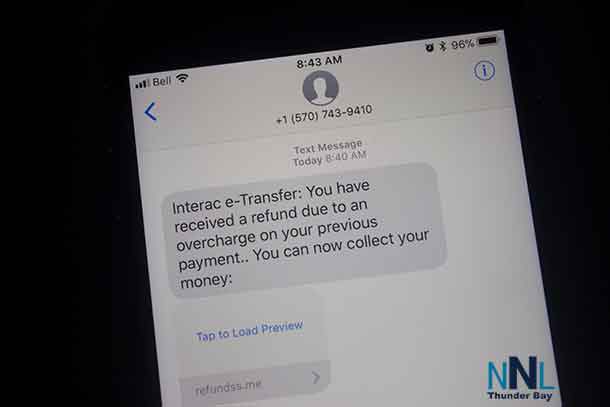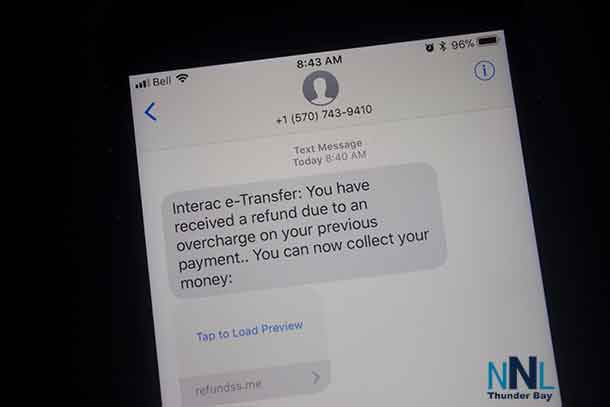
THUNDER BAY – The efforts to separate you from your hard-earned money, or to steal your personal information are a full time effort by many sad individuals who attempt to prey on good people.On Thursday November 9, 2017 members of the Ontario Provincial Police (OPP) Superior East Detachments were made aware of several different types of frauds/scams in the Wawa area.
Across the province there are reports almost daily of efforts by these scam artists. On Thursday, November 9, 2017, members of the Ontario Provincial Police (OPP) Superior East Detachments were made aware of several different types of frauds/scams in the Wawa area.
As a result of recent complaints, police would like to remind the public that “You have to do your homework prior to giving any personal information or money to anyone. Below are some recent scams reported, however, we have to remember that new ones are created every day”.
Canada Revenue Agency (CRA) Scam
If you receive a fraudulent communication by email, phone, text, mail, from someone that claims to be the CRA and they request personal information, these are scams and never respond.
The CRA will never send you a link and ask you to divulge personal or financial information.
These scams may insist that this personal information is needed so that the taxpayer can receive a refund or a benefit payment. Cases of fraudulent communication could also involve threatening or coercive language to scare individuals into paying fictitious debt to the CRA.
Ask yourself:
- I’m I expecting more money from the CRA?
- Does this sound too good to be true?
- Is the requester asking for information I would not provide in my tax return?
- Is the requester asking for information I know the CRA already has on file for me?
Grandparent or Emergency Scam
In a typical “emergency” scam, the victim receives a phone call or e-mail from someone claiming to be a friend or relative, like a grandchild in distress. The caller or e-mailer goes on to indicate that they are in some kind of trouble, such as being in a car crash, they need money for bail, or they are having trouble returning from a foreign country. The fraudster specifically asks that the victims to not tell other relatives. You may get a call from two people, one pretending to be your grandchild and the other pretending to be either a police officer or a lawyer. Your “grandchild” asks questions during the call, getting victims to volunteer personal information. Victims (often seniors) generally don’t verify the story until after their money has been sent through a wire transfer service or they have given access to personal banking or credit card information to criminals.
Counterfeit Money Scam
The OPP would like to warn the public about fake bills.
The OPP, have received a complaint from a local business about fake $100 bills. The OPP are advising that the poor quality copies don’t retain the print from its synthetic polymer surface, also known as plastic money.
Residents and businesses are reminded to check bills carefully during every transaction. If you suspect a bill may be counterfeit, report it to police immediately.
FRAUD…Recognize it …Report it …Stop it
LEARN MORE
If you suspect you may be the victim of fraud or have been tricked into giving personal or financial information, contact your local OPP detachment at 1-888-310-1122 or the (Link) Canadian Anti-Fraud Centre at 1-888-495-8501.
Competition Bureau: Aims to increase your awareness of the many types of fraud that target Canadians and offers some easy steps you can take to protect yourself and avoid falling victim to fraud.
View “The Little Black Book of Scams” online at: www.competitionbureau.gc.ca







